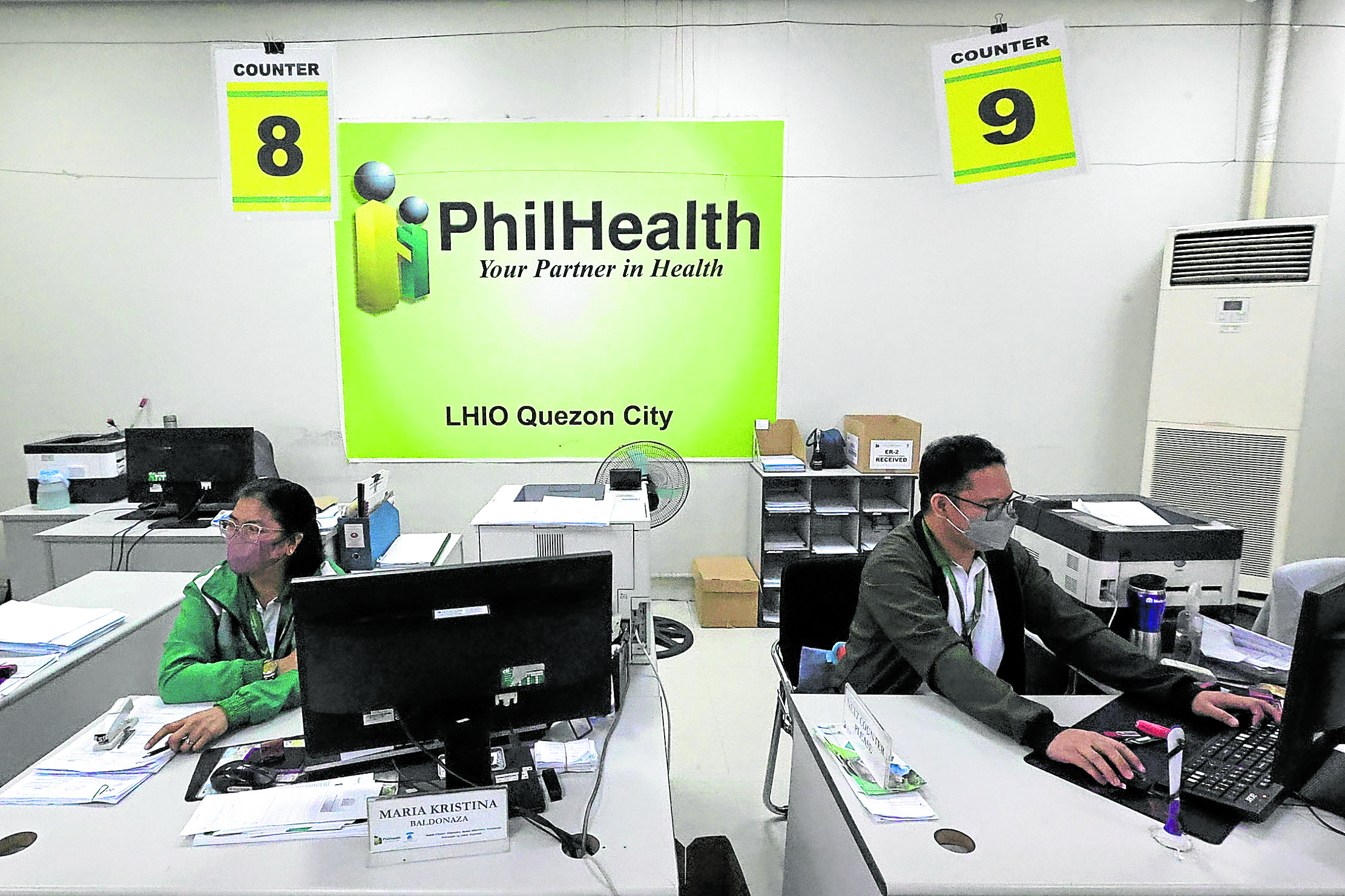PhilHealth urged to cover optometric services

PhilHealth office. INQUIRER FILE PHOTO
A party list lawmaker urged the Philippine Health Insurance Corp (PhilHealth) on Wednesday to include optometric services, worth up to P4,000, in its offered benefits for members.
AGRI party list Rep Wilbert Lee filed House Resolution No. 1623 to urge PhilHealth to cover optometric services. He pointed out that “the ability to see is crucial for individual development at every stage of life, from infancy to adulthood, as vision underpins the very structure of our societies.”
He cited Republic Act No. 8050, or the Revised Optometry Law of 1995, which provides the state’s recognition of optometry’s essential role as a profession and in its enhancement of the health and general physical well-being of Filipinos, and noted, “Optometric services shall therefore be promoted as a regular component of the primary health care system.”
READ: PhilHealth charter review, more benefits for members pushed
Lee further referred to the Philippine Eye Research Institute’s 2018 Philippine National Blindness Survey and Eye Disease Study, which showed that visual impairment and blindness are significant public health concerns in the country.
Article continues after this advertisement“The study found a national prevalence rate of 1.98%, translating to approximately 1.11 million Filipinos diagnosed with cataracts; 400,000 with uncorrected refractive errors; close to 300,000 with glaucoma; and 200,000 with maculopathy,” he said. Maculopathy affects the macula or the back of the retina, which generally causes blurry vision.
Article continues after this advertisementThe lawmaker pointed out that the same study found that 4 million Filipinos have undiagnosed eye problems.
He pointed out that while PhilHealth covers ophthalmology services, like eye surgery, consultations, and screening for certain eye problems, it excludes optometry services that detect vision impairment, like refractive errors, and provide timely eye care and interventions.
Ophthalmologists are doctors who can use surgery and other medical procedures to treat complicated eye problems, while optometrists, who are not physicians, focus on regular and primary eye care and perform vision tests, prescribe eyeglasses, manage eye conditions like glaucoma and provide low-vision aid and vision therapy.
Severe consequences
“Given the concerning number of Filipinos experiencing vision problems or blindness, it is crucial to include optometry services under PhilHealth. This would make essential eye care affordable and accessible for millions of Filipinos, allowing for early detection and treatment of eye conditions,” the lawmaker said, noting that those who avail of optometric services usually need to spend from P1,500 to P4,000.
READ: Gov’t subsidy to PhilHealth hit record-high in 2021
Lee maintained that unaddressed vision impairment has severe consequences ranging from delayed development in children to social isolation, depression, and economic hardship in adults.